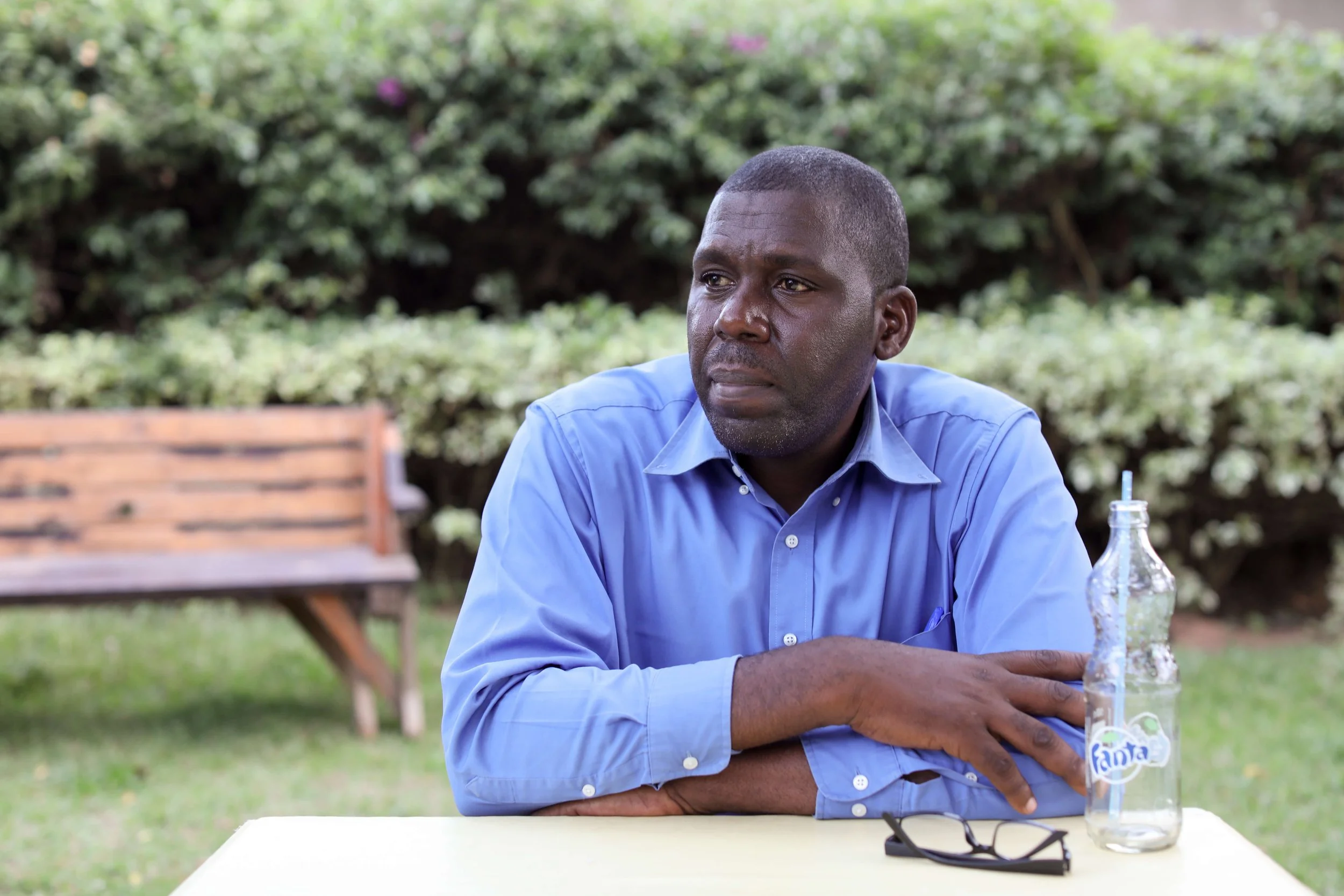The Rescuers
“The genocide was an opportunity to get rich. Murdering people was the quickest way to accumulate wealth. We were given permission from the government to seize the property of anyone we killed. We were told it was our god given right. But I never felt the temptation. My family owned a very big supermarket. I had my own car. When the killings began in 1994, I had a scholarship to study in Greece and I was just waiting to begin university. My stepfather was Vice President of our region, so we had four bodyguards in the house. These guys were highly trained with automatic weapons. They became good friends of mine. I’d take them to the bar every night. I’d drive them around and buy them anything they wanted. They were also good human beings. One night over drinks we discussed the genocide, and all of us decided: ‘We’re going to put an end to this in our neighborhood.’ The next morning I woke up to my neighbor screaming. I looked out the window and saw that he’d been surrounded by a mob with machetes, and was bleeding badly from the head. I’d been friends with him since childhood. So I sent my bodyguards to save him. The machetes were no match for our guns. Word spread quickly after that. Tutsi families came to our compound seeking refuge. I took long walks with my bodyguards every morning, looking for people to save. We drove to surrounding farms and searched the fields for survivors. At one point we had seventy people under our protection. Nobody challenged us. I was young and cocky. I thought we were untouchable.”
“The killings were being encouraged by the national radio station. Every day they would announce how many people had been killed. They’d announce the location of the killings. And they’d give thanks to those who were doing the killing. One morning I was sitting in my bedroom, and I heard an announcement on the radio: ‘Everyone is being killed in Gatobotobo except for those under the protection of the Felix family.’ I knew then that we were in danger. Not long after the announcement, the Minister of Internal Security came to our village for a meeting. It took place on a hill overlooking our property. He could see everything that was happening in our compound. When he left the meeting, his convoy began driving toward our home. The minister was riding in a truck full of armed soldiers. When he passed by me in the street, the truck slammed on the brakes. All my bodyguards ran away and I was left completely alone. My neighbors began to gather around. They were laughing and applauding and saying, ‘This is the guy who was stopping the killings.’ The minister walked over to me. He pushed me on the ground and leaned over my body. He was covered with sweat. His eyes were wide. There was dried spit on the edges of his lips. He had the face of the devil. He took off his belt and began beating me until I lost consciousness.”
“When I woke up, I found myself lying alongside a very deep pit. It was full of bodies. My stepfather was standing over me. Somehow he had learned about the attack, and had come with his bodyguards to rescue me. He picked me off the ground. I was barely conscious. When we returned home, my stepfather called the government to complain about what had happened. But he was told to watch his back. He was told that our family was no longer under protection. My mother begged me stop helping people. She told my bodyguards to not let me leave the house. But by that time the Rwandan Patriotic Front was getting very close to our village. The fighting grew very intense. My family packed everything and fled toward the border with Congo. Four of my sisters were killed on the journey. I remained behind with the seventy people. Our bodyguards were gone. We were helpless. We had no guns. We just prayed the rebels would liberate us as soon as possible. I knew the killing groups would be coming to my home, so I gathered all the remaining biscuits and water. I took everyone to the house of someone who had already been murdered. It seemed like the safest place to be. I closed them inside and padlocked the door. Then I finally ran off to reunite with my family. I learned later that everyone in that house was rescued. Only four of the seventy lost their lives. And almost all of them are still alive today. We remain friends. We’re still neighbors. They bring me gifts. I see them in the streets almost every day, and whenever we meet, they show me their love.”











